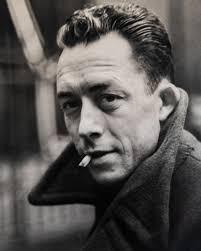
It starts with rats, coming out, bloodily dying, all over. Of course it’s the plague. Literally; the Bubonic Plague, the Black Death that devastated Europe in the 14th century. In the 20th it hits the French Algerian city of Oran, in the famous Albert Camus 1947 novel, The Plague. Having a new vogue now, and one of my book groups chose it, for obvious reasons.
Camus based his depiction on an actual cholera epidemic striking Oran a century before. Philosophically, Camus has been called an “absurdist,” believing that our lives always ending in death makes them fundamentally absurd; yet it’s up to us to nevertheless make of them what we will. Here, the capriciousness of plague death highlights the absurdity, while the characters do what they can to combat it, imbuing them with a valiant power.
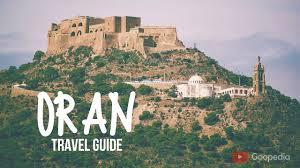
The main protagonist is a doctor, Bernard Rieux, in the forefront of the struggle, doing his best to cope under terrible strain. As the death toll inexorably rises, the walled city is closed off, no one allowed in or out. Many separated from loved ones. Supplies run short. Naturally it’s hard to maintain a semblance of normal life. (The Covid restrictions we’re enduring seem tame in comparison.)
Rambert is a journalist, caught accidentally in Oran. He deems it unfair, having no real connection to the town but now imprisoned with the rest, aching to get back to his distant beloved. But all his pleas for an exemption fail. Desperation leads him to shady characters to smuggle him out for a price. There follows an opera buffa of missed connections. And when escape at last does seem imminent, so much time has passed that Rambert changes his mind, now feeling he does belong here. He settles in to help fight the plague.

When it’s finally defeated, Rambert is reunited with his love, embracing on a railway platform. But it’s not so simple a happy ending. Life is a flow, and like a river, is never really the same even from one moment to another. We cannot totally return to what existed before, when it’s interrupted by something like a plague. But even without such a dramatic discontinuity, we never can anyway. Rambert realizes this when hugging his gal. Likewise for us, Covid-19 will prove to have changed everything forever.
Then there’s old Monsieur Grand. A drone of a clerk in the municipal administration. He’s not good with words, struggling to express himself. That scuppered his long-ago youthful marriage; his wife gave up on his inexpressiveness and left.
For many years since, Grand’s had a secret pastime. Turns out to be a literary endeavor. Odd for a man short on words. Yet he’s striving for a work that will be greeted by “Hats off!” Eventually he shares with Rieux and others at least the first sentence, on which he’s been obsessing forever, struggling for perfection, each of its words in turn getting agonizing attention.
Grand falls ill. Seems dying. Shows Rieux the full manuscript — found to contain nothing but that lone sentence in all its endless permutations. Burn it, Grand commands, so forcefully that Rieux complies.
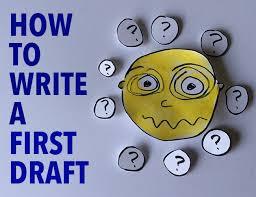
But then Grand surprisingly recovers. It’s okay, he assures Rieux — he can remember the line. And later, when the plague is over, amid the rejoicing, he relates that he’s now simply eliminated all the adjectives he’d struggled over. And that he’s written to his ex-wife.
The character I found most compelling, strangely enough, is the old Jesuit priest, Father Paneloux. Struggling to reconcile Oran’s travail with his Christian faith. In a big sermon, he calls the plague “the flail of God” whirling over the city, comeuppance for insufficient faith. Oran now learning the lesson of Sodom and Gomorrah. The sermon doesn’t go over well. The citizens really don’t feel like bigtime sinners.
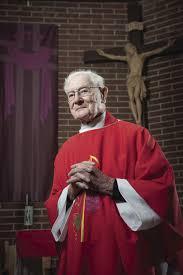
But as the plague continues ramping up, as do efforts to combat it, with Father Paneloux joining in them, he has a rethink. He preaches another, rather different sermon. Instead of saying “you,” he now says “we.” Acknowledging that his previous scourging words lacked charity. Suggesting that the plague actually cannot be understood at all. In this, Paneloux was bitterly mindful of a child’s agonizing death he’d attended.
What it all comes to, he says, is their arrival at a time of testing. “We must believe everything or deny everything.” Must accept the plague; accept that child’s torture. It’s not mere resignation, but actually embracing humiliation. Paneloux acknowledged preaching now a kind of fatalism, but an active fatalism. We cannot understand God’s will yet must make it ours. Otherwise we’re rejecting God.
And Paneloux practiced what he preached. Soon falling sick himself, he refuses any sort of intervention that might have helped him. Without struggle, deeming it God’s will, he goes to his death. If he’s consoled by an expectation of Heaven, the book is conspicuously silent about that.
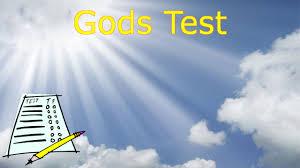
Was Camus portraying Paneloux as some kind of saint? Certainly not. The plague does present a time of testing — it tests the idea of a God. For Paneloux, failure on that test is impossible. He’d rather die. But fail God does. Paneloux’s renunciation serves to demonstrate the incoherence of the belief system he struggled to make sense of. Our lives may ultimately be absurd, but less so without God.
